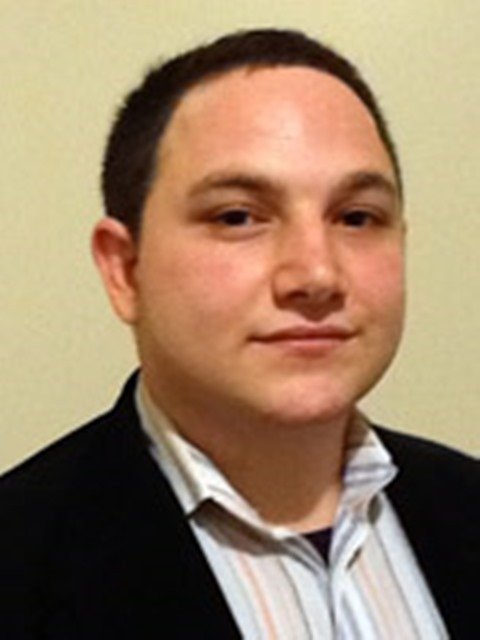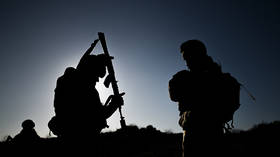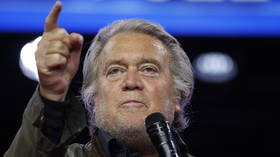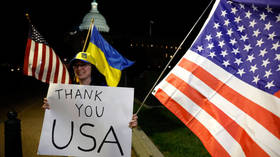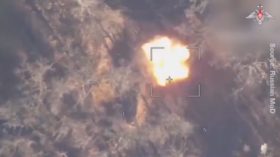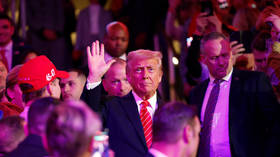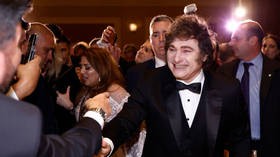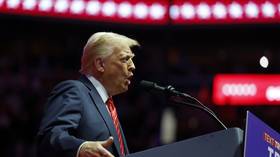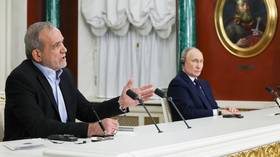Does God work for the CIA?
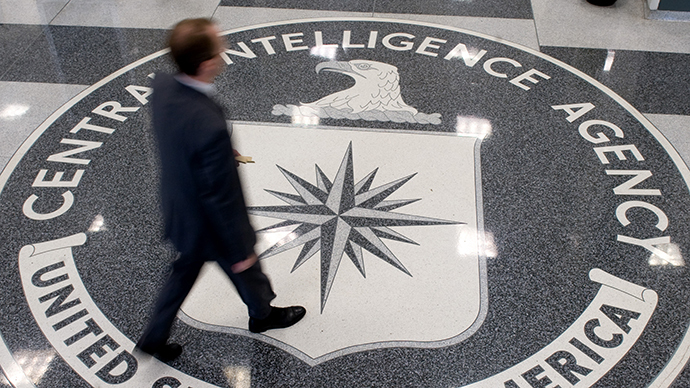
The arrest and imprisonment in North Korea of US citizen Kenneth Bae raises once again the issue of the use of religion and humanitarianism as covert vehicles for furthering US hegemony.
The controversy surrounding former NBA star Dennis Rodman’s “basketball diplomacy” in North Korea centers around his apparent refusal to “speak on behalf” of Kenneth Bae, a US citizen imprisoned in North Korea for what Pyongyang has referred to as “crimes against the state.” Naturally, the Western media narrative on the Bae case is that he is a devout Christian who simply may have broken North Korean laws regarding religion and religious paraphernalia.
As reported by The Telegraph, Bae and his group were using his tourist agency as a vehicle for proselytizing their Christian beliefs in the stridently atheist country. Participants in Bae’s group admitted to smuggling Bibles into the country, singing Christian songs and, in reference to the biblical story of Jericho, “praying for the walls to come down.” Whether one disagrees with a religious ideology being criminalized, it is an incontrovertible fact that Bae and his groups committed what Pyongyang considers to be a very serious crime.
While the imprisonment of an American in North Korea is already a story, his arrest has aroused suspicions in certain international circles that Bae, like so many before him, was in fact working with the CIA or other US intelligence agency. While it is impossible to say definitively whether Bae was in North Korea operating a legitimate tour business, or was simply using that as a cover for covert espionage, the incident again reminds us of the long-standing, sordid relationship between the US intelligence community and religious/humanitarian groups and institutions.
God and country
Religious leaders and groups have for decades provided fertile ground for the recruitment and employment of intelligence operatives. In the wake of the Watergate scandal in the United States, when many Americans began seriously questioning US covert espionage domestically and internationally, the US Senate formed a committee to study the operations and activities of the CIA and other US intelligence agencies. Led by Senator Frank Church of Idaho, the “Church Committee” as it came to be known, issued its final report in 1975. The report covered far reaching topics from the origins of the various agencies to their financial records. One important topic the committee looked at was the utilization of clergy and religious groups by the CIA. As the report noted on page 202:
“The number of American clergy or missionaries used by the CIA has been small. The CIA has informed the Committee of a total of 14 covert arrangements which involved direct operational use of 21 individuals…In six or seven cases, the CIA paid salaries, bonuses, or expenses to the religious personnel, or helped to fund projects run by them. Most of the individuals were used for covert action purposes. Several were involved in large covert action projects of the mid-Sixties, which were directed at “competing” with communism in the Third World.”
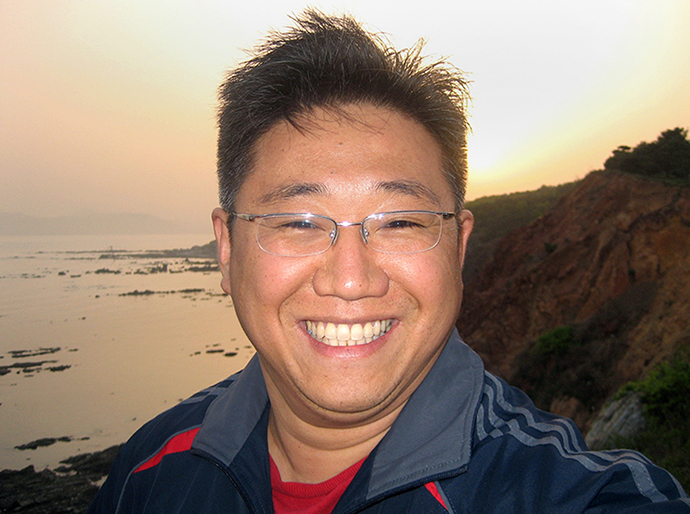
Of course, it should be noted that the decidedly “small number” of 21 individuals is somewhat misleading. First, this is merely the number voluntarily provided by the CIA, and fitting their definition of “direct operational use.” It is quite easy to imagine that a much greater number of individuals had working relationships with the agency but were not classified as “directly operational.” This would undoubtedly include many who may have interacted with the agency through proxies and other third parties, as well as those who, through various front operations, may have not even known that they were working for the agency.
Secondly, the report was issued in 1975, nearly 40 years ago. In the meantime, the scope and breadth of US covert actions has grown dramatically, encompassing nearly every political, economic, social, technological and cultural sphere. This expansion of the intelligence apparatus itself makes the report more of a framework for understanding a broad policy, rather than a precise historical document. As such, the Church Committee’s report essentially provides a glimpse into the shadows, rather than shining a direct spotlight on all activities.
Finally, the above excerpt deals exclusively with the CIA. It does not include other intelligence agencies and their various offshoots including the Defense Intelligence Agency (DIA), State Department with its attendant National Endowment for Democracy (NED), US Agency for International Development (USAID) and many more. Taken in total, the various organizations make up the greater intelligence apparatus within which one would be likely to find thousands upon thousands of religious individuals and organizations. To be sure, not every one of these is working toward nefarious ends. However, it certainly raises questions about the very nature of their relationship.
Bibles, bullets and bombs
The release of the Church Committee’s findings in 1975 stunned many in the United States and around the world. For the first time, the public began to get a sense of the sheer scope of the intelligence agencies’ operations and the relationship between major world events and covert actions. As public attention faded, the United States continued its imperial domination of Latin America and other parts of the world, often using humanitarianism and charity as effective cover.
In 1996, veteran journalists Gerard Colby and Charlotte Dennett published their classic book “Thy Will Be Done – The Conquest of the Amazon: Nelson Rockefeller and Evangelism in the Age of Oil,” which painstakingly documented the incestuous relationship between the US intelligence apparatus and the private religious sphere. Specifically, the book illuminated the personal and professional friendship of Nelson Rockefeller and William Cameron “Cam” Townsend, founder of Wycliffe Bible Translators, the world’s largest fundamentalist missionary group. Colby and Dennett write:
“…many clergy became direct collaborators with the CIA. One member of the Christian and Missionary Alliance (C&MA) was proud of this collaboration. William Carlsen, a missionary in northeastern Thailand, considered it "a privilege to share information with responsible agencies of the government where they seek us out." Carlsen gave an eight-hour briefing to the CIA on Thailand's tribal areas when he returned home for a furlough. Most C&MA missionaries did likewise, according to a CIA source. Most of the information gleaned was about people, their actions, opinions, and grievances.”
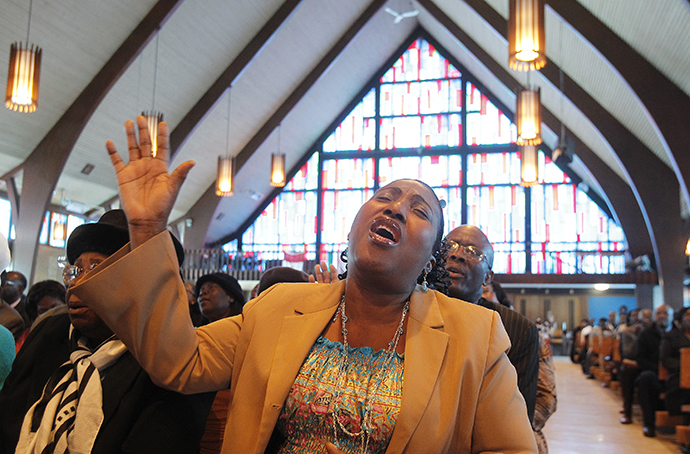
Merely one example pulled from a rich history of such collaborations, the above excerpt demonstrates not only the interaction between the Agency and Christian missionaries, but some of the ways in which they were utilized. Because of their hands-on experience with indigenous peoples and cultures, the missionaries were used to map the human and cultural geography of disparate groups, facilitating the creation of a vast intelligence database to be used for covert action.
As the connections between the CIA and religious groups such as Wycliffe and its associated Summer Institutes of Linguistics (SIL) had become known, the public perception of this relationship became very worrisome. So, as Colby and Dennet write:
“President Nixon's director of [US]AID, John Hannah, had admitted publicly that AID had funded CIA operations in Laos, and subsequent revelations pointed to CIA-AID collaboration in Ecuador, Uruguay, Thailand and the Philippines. These revelations could hurt all missionary efforts, but the Summer Institute of Linguistics (SIL) was particularly vulnerable... By the 1960s, SIL was receiving a hefty income from AID indirectly through foreign governments that received US foreign aid or directly through AID-funded programs in bilingual education and agricultural development cooperatives. This income was supplemented by surplus military equipment, including helicopters that were retired from Vietnam and donated to SIL.”
Wycliffe-SIL was merely one node within a large and complex network of religious organizations working in the interests of US imperialism and the military-industrial complex. However, these revelations cannot be understood in a vacuum. Rather, one must incorporate such a systemic understanding into an analysis of real-world events in recent years to see just how such covert action, carried out under religious, humanitarian and “democratic” auspices, continues to be used.
‘What have you done for me lately?’
There have been many arrests of individuals operating all over the world under religious and humanitarian cover in recent years. One notable example is the highly publicized arrest and conviction of US “contractor”Alan Gross, convicted in Cuba of crimes against the state. Although the US media portrays Gross as an innocent victim merely in Cuba to help the Jewish community to expand its internet connectivity, the reality is much more insidious. In fact, Gross was in Cuba as part of a $20 million US government program that provided him the cover to engage in covert subversive actions designed to lay the groundwork for a destabilization of the Castro government.
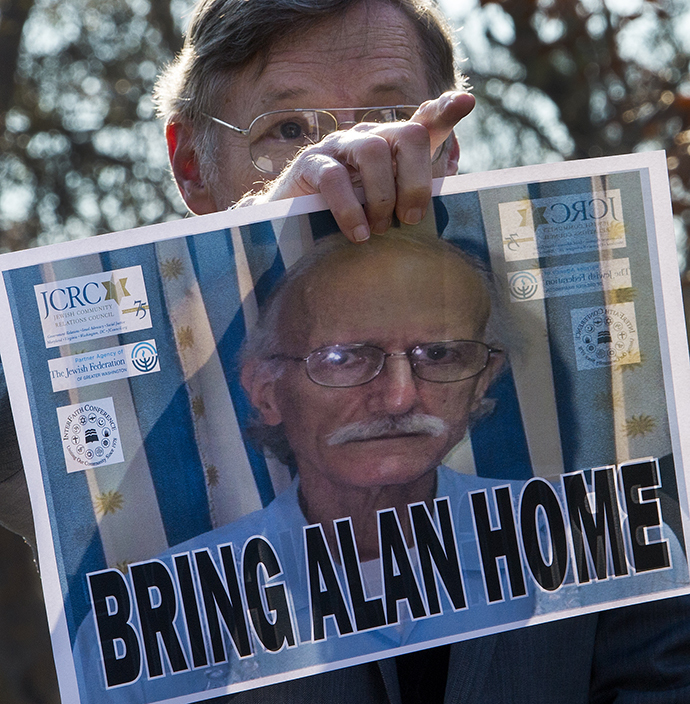
Gross was an employee of Development Alternatives Inc., a development firm based in Maryland whose major client list includes some of the most powerful corporations and development agencies in the world. One of DAI’s principal clients is none other than USAID. The working relationship between the two organizations runs deep, including no less fifteen current lucrative contracts active worldwide.
That Gross, a man with almost no Spanish-language skills, travelled to Cuba a number of times over a short period on a travel visa undoubtedly raised suspicions. That there has yet to be any substantive evidence provided to refute the Cuban court decision lends further credence to the fact that, whatever Gross was doing in Cuba, it was not benevolent nor humanitarian.
Like Cuba, Bolivia has managed to expose the political agenda of USAID and its affiliated organizations. Bolivian President Evo Morales led the charge to eject USAID from his country, stating that there was “no lack of US institutions which continue to conspire against our people and especially the national government, which is why we’re going to take the opportunity to announce…that we’ve decided to expel USAID.” Morales pointed out that USAID’s programs have “political rather than social ends.” Despite vigorous denials by USAID officials and the US political establishment, there is ample evidence backing up the Bolivian president’s assertions.
As reported by Bejamin Dangl in The Progressive of February 2008:
“Declassified documents and interviews on the ground in Bolivia prove that the Bush Administration is using US taxpayers’ money to undermine the Morales government and co-opt the country’s dynamic social movements—just as it has tried to do recently in Venezuela and traditionally throughout Latin America. Much of that money is going through the U.S. Agency for International Development (USAID). In July 2002, a declassified message from the U.S. embassy in Bolivia to Washington included the following message: ‘A planned USAID political party reform project aims at implementing an existing Bolivian law that would . . . over the long run, help build moderate, pro-democracy political parties that can serve as a counterweight to the radical MAS or its successors.’ MAS refers to Morales’s party, which, in English, stands for Movement Toward Socialism.”
Of course, this information comes as no surprise to anyone in Latin America, where the United States has attempted to maintain its imperial control for over a century. What becomes clear from these revelations is that USAID, like Wycliffe and SIL, is part of a vast intelligence apparatus that is intended to project US power and influence political developments in other countries in the interest of the ruling class in the United States.
It still remains a mystery just exactly what Kenneth Bae was doing in North Korea. While his family contends that he is simply a good Christian who was arrested for violating anti-religious laws, the staggering amount of historical evidence pertaining to the use of religious/humanitarian organizations and individuals as forces of subversion casts some doubt. What cannot be disputed is the fact that US hegemony has been, and continues to be, maintained through a diverse collection of propaganda tools, of which religion and humanitarianism are some of the most effective.
The statements, views and opinions expressed in this column are solely those of the author and do not necessarily represent those of RT.
The statements, views and opinions expressed in this column are solely those of the author and do not necessarily represent those of RT.
